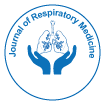Notre groupe organise plus de 3 000 séries de conférences Événements chaque année aux États-Unis, en Europe et en Europe. Asie avec le soutien de 1 000 autres Sociétés scientifiques et publie plus de 700 Open Access Revues qui contiennent plus de 50 000 personnalités éminentes, des scientifiques réputés en tant que membres du comité de rédaction.
Les revues en libre accès gagnent plus de lecteurs et de citations
700 revues et 15 000 000 de lecteurs Chaque revue attire plus de 25 000 lecteurs
Indexé dans
- Google Scholar
Liens utiles
Revues en libre accès
Partager cette page
Abstrait
Improvements to Respiratory Infrastructure through Technology-Based Optimisation
Wedzicha S
A comprehensive health diplomacy which can leverage Indian strengths and match it to Indian requirements at the international level requires an ability to synthesize and blend the various international cooperation activities already being undertaken by different branches of Government. A purpose-driven and non-silted approach to health diplomacy and structures that facilitate a whole-of-government approach to this critical area are required. India will need to tap foreign direct investment and technology for the private sector which has an important role in our health sector. Further, upgradation of Indian healthcare research and development capacity is paramount if we are to transition into a knowledge economy. Research and development capacity is in turn dependent on funds which are channelled in accordance with agendas that are fashioned by globally influential players including multilateral bodies, global health initiatives, Pharma companies, academic institutions and non-state actors. India needs to project its priorities on this global stage to ensure that its pressing problems are factored into these discussions. Indian priorities include antimicrobial resistance, studies on pathogens, vaccine technologies, bio-therapeutics, technologies for antibodies, diagnostics technologies,
early warning systems, Health system preparedness as well as social and economic interventions
Revues par sujet
- Agriculture et Aquaculture
- Biochimie
- Chimie
- Food & Nutrition
- Génétique et biologie moléculaire
- Géologie et sciences de la Terre
- Immunologie et microbiologie
- Ingénierie
- La science des matériaux
- Le physique
- Science générale
- Sciences cliniques
- Sciences environnementales
- Sciences médicales
- Sciences pharmaceutiques
- Sciences sociales et politiques
- Sciences vétérinaires
- Soins infirmiers et soins de santé
Revues cliniques et médicales
- Allaitement
- Anesthésiologie
- Biologie moléculaire
- Cardiologie
- Chirurgie
- Dentisterie
- Dermatologie
- Diabète et endocrinologie
- Gastro-entérologie
- Immunologie
- La génétique
- Maladies infectieuses
- Médecine
- Microbiologie
- Neurologie
- Oncologie
- Ophtalmologie
- Pédiatrie
- Recherche clinique
- Soins de santé
- Toxicologie

 English
English  Spanish
Spanish  Chinese
Chinese  Russian
Russian  German
German  Japanese
Japanese  Portuguese
Portuguese  Hindi
Hindi